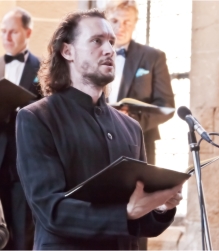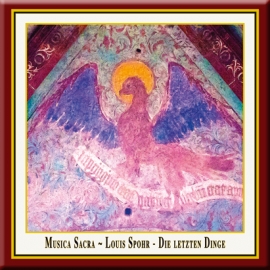Josef Wagner

Baritone
 The musical education of the Austrian Bass-Baritone Josef Wagner, born in 1975, began with a membership in a boys' choir and with violin and piano lessons. Later he studied singing at the University of Music and Dramatic Arts in Vienna, where he was inspired by Paul Esswood, Walter Berry and Christa Ludwig. His current teacher is the tenor Wicus Slabbert. After the debut with "Don Alfonso" ("Così fan tutte" and Dulcamara ("Elisir d'amore") Josef Wagner became a member of the Vienna Volksoper in 2002. His repertoire includes "Figaro" in "Le nozze di Figaro", "Don Alfonso" and "Guglielmo" in "Cosi fan tutte", "Masetto" in "Don Giovanni", "Papageno" in "Die Zauberflöte" (Mozart), "Dulcamara" in "L'elisir d'amore" (Donizetti), "Publio" in "La clemenza di Tito" (Mozart), "Alidoro" in "La Cenerentola" (Rossini), "Colline" in "La boheme" (Puccini), "Philebos" in "Der König Kandaules" (Zemlinsky), "Fra Melitone" in "La forza del destino" (Verdi) and other roles. He performs at the Salzburg Festival, the Vienna Volksoper and the opera houses of Bern, Geneva, Ireland and Japan. At the Israeli Opera he sang Lord Sidney in Il viaggio a Reims (Rossini). In addition to his career as an opera singer Josef Wagner also performes as a concert singer. Thus he gave concerts under the conductors Ton Koopman, Dennis Russell Davies and Nikolaus Harnoncourt in Vienna's Musikverein and the Vienna Konzerthaus.
The musical education of the Austrian Bass-Baritone Josef Wagner, born in 1975, began with a membership in a boys' choir and with violin and piano lessons. Later he studied singing at the University of Music and Dramatic Arts in Vienna, where he was inspired by Paul Esswood, Walter Berry and Christa Ludwig. His current teacher is the tenor Wicus Slabbert. After the debut with "Don Alfonso" ("Così fan tutte" and Dulcamara ("Elisir d'amore") Josef Wagner became a member of the Vienna Volksoper in 2002. His repertoire includes "Figaro" in "Le nozze di Figaro", "Don Alfonso" and "Guglielmo" in "Cosi fan tutte", "Masetto" in "Don Giovanni", "Papageno" in "Die Zauberflöte" (Mozart), "Dulcamara" in "L'elisir d'amore" (Donizetti), "Publio" in "La clemenza di Tito" (Mozart), "Alidoro" in "La Cenerentola" (Rossini), "Colline" in "La boheme" (Puccini), "Philebos" in "Der König Kandaules" (Zemlinsky), "Fra Melitone" in "La forza del destino" (Verdi) and other roles. He performs at the Salzburg Festival, the Vienna Volksoper and the opera houses of Bern, Geneva, Ireland and Japan. At the Israeli Opera he sang Lord Sidney in Il viaggio a Reims (Rossini). In addition to his career as an opera singer Josef Wagner also performes as a concert singer. Thus he gave concerts under the conductors Ton Koopman, Dennis Russell Davies and Nikolaus Harnoncourt in Vienna's Musikverein and the Vienna Konzerthaus.














